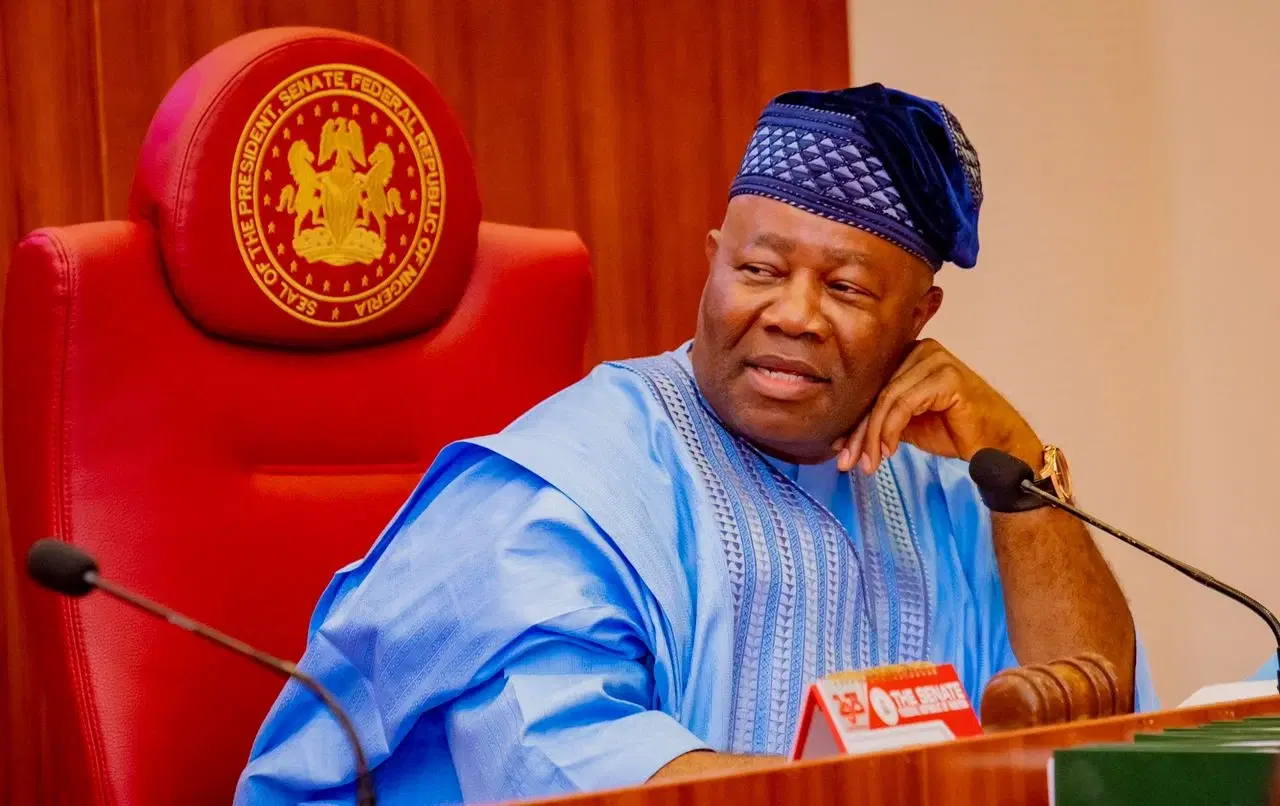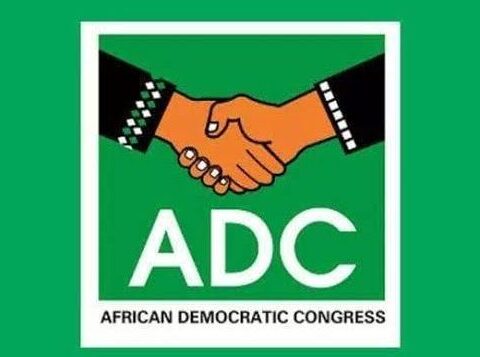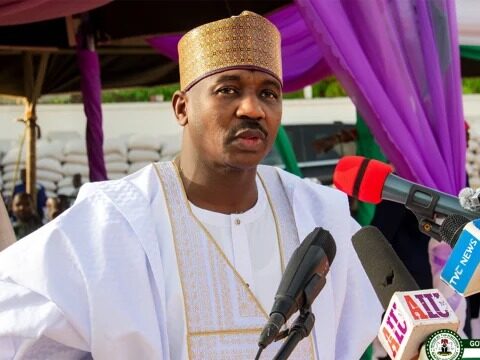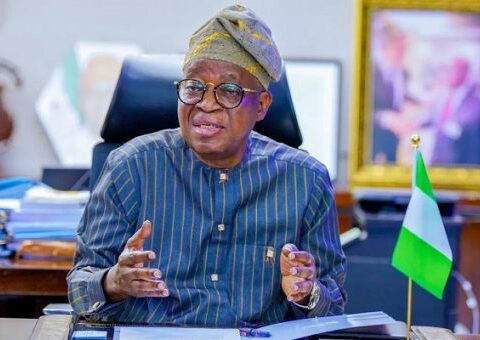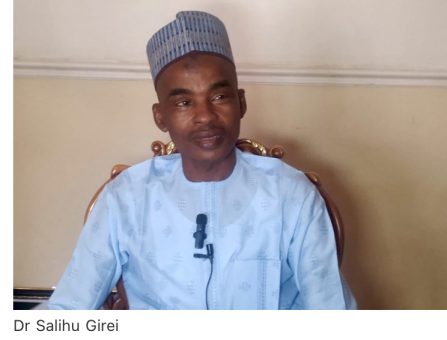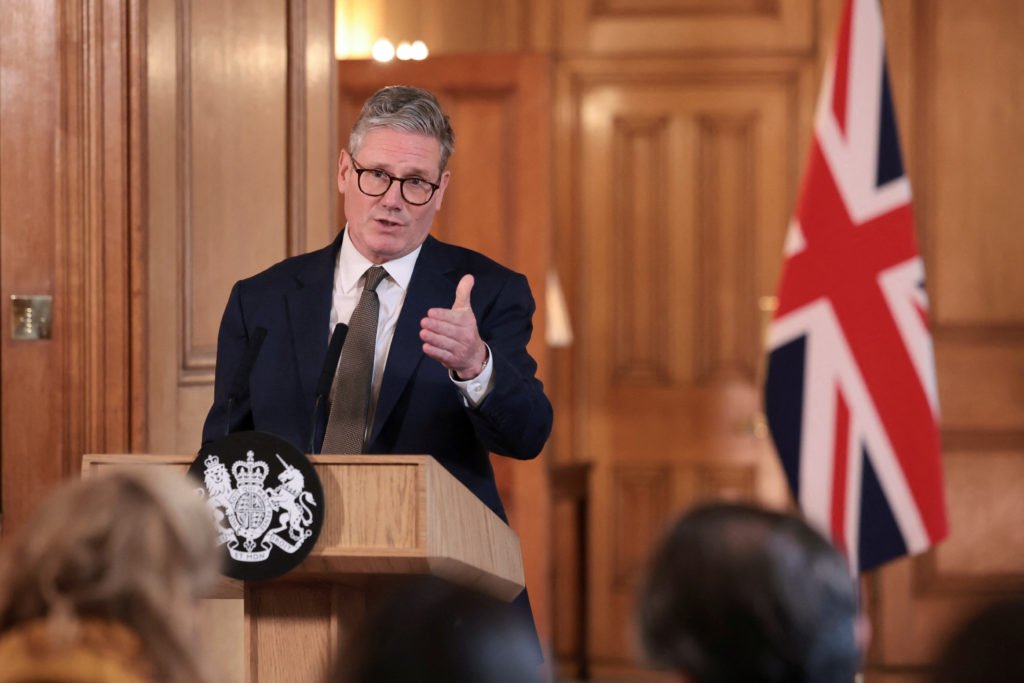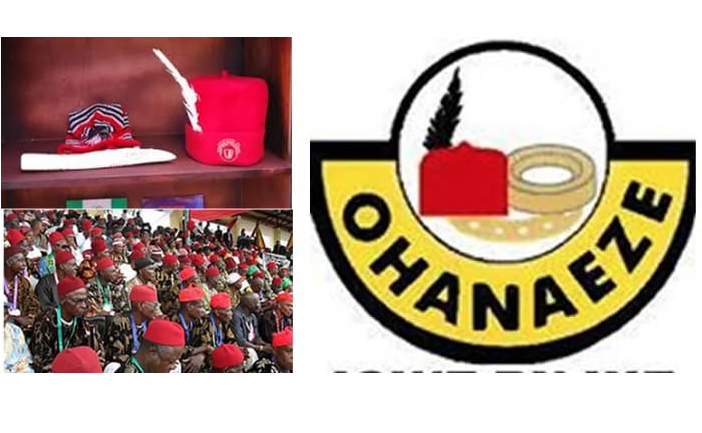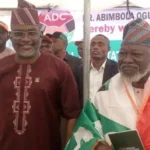Dr. Nelson Nse-Obong
The Nigerian Senate, as the upper chamber of the National Assembly, is entrusted with the solemn duty of lawmaking, oversight of the executive, representation of the federation’s diverse interests, and safeguarding democratic principles. Established under the 1999 Constitution (as amended), it symbolizes the apex of legislative authority in Africa’s most populous nation, wielding powers that can shape economic policies, approve budgets, and check executive excesses.
However, since June 13, 2023, when Godswill Obot Akpabio was elected as its 15th President with 63 votes amid internal party machinations, the institution has been plunged into a vortex of scandals, ethical lapses, and procedural irregularities that undermine its foundational ethos.
Akpabio, a seasoned politician with a controversial past as Governor of Akwa Ibom State (2007–2015) and Minister of Niger Delta Affairs (2019–2022), has presided over a Senate marred by allegations of corruption, sexual misconduct, insensitivity to public suffering, and authoritarian tendencies.
These destructive controversies not only highlight his mismanagement but have also severely tarnished the Senate’s image, portraying it as an elitist enclave detached from the realities of ordinary Nigerians grappling with economic hardship, insecurity, and governance failures.
His leadership style, which is characterized by hasty decision-making, perceived partisanship, and a flair for dramatic faux pas, has amplified perceptions of the Senate as a rubber-stamp body subservient to the executive under President Bola Tinubu.
Far from fostering robust debate and accountability, his tenure has witnessed a series of high-profile debacles that erode public trust, invite international ridicule, and perpetuate the narrative of Nigerian politics as a theater of the absurd. Akpabio’s stewardship, so far, has not only weakened internal cohesion but also diminished the Senate’s moral authority, making it a symbol of dysfunction rather than democratic renewal. This calls for urgent need for ethical reforms to reclaim the institution’s dignity.
To fully grasp Akpabio’s mismanagement, one needs to contextualise it against his chequered political history, which has long been synonymous with opulence, allegations of graft, and unbridled ambition. Akpabio became a fixture in the People’s Democratic Party (PDP) before defecting to the All Progressives Congress (APC) in 2018. His eight-year governorship was dubbed the “Uncommon Transformation” era. It was marked by infrastructure projects like roads and flyovers, but overshadowed by allegations of “exceptional” corruption described by American diplomats in leaked cables.
The Economic and Financial Crimes Commission (EFCC) investigated him for diverting over ₦100 billion from state coffers, including inflated contracts and personal luxuries such as private jets. An audit report later alleged financial infractions totaling ₦1 trillion, yet Akpabio evaded prosecution, leveraging political connections.
As Minister of Niger Delta Affairs, Akpabio’s tenure exploded into scandal in 2020 when he was summoned by the House of Representatives over the alleged misappropriation of ₦40 billion from the Niger Delta Development Commission (NDDC). Forensic audits implicated him in diverting ₦19.25 billion to personal accounts, while testimonies accused him of contract fraud and intimidation.
Joy Nunieh, the acting NDDC Managing Director, publicly claimed she slapped him for sexual harassment and thwarting her anti-corruption probes. These episodes painted Akpabio as a transactional operator, more adept at patronage than public service, a trait that has defined his leadership of the Senate.
His 2023 election as Senate President was no triumph of merit but a product of APC zoning formulas and alleged inducements. Reports emerged of him doling out $350,000 (approximately ₦218 million at the time) to each of the 63 senators who voted for him, framing politics as a “cash-and-carry” enterprise. The reports were not denied.
According to @jacksonpbn, this set a tone of transactionalism, where loyalty is bought rather than earned, immediately eroding the Senate’s impartiality. Also, critics, including rights activist Aisha Yesufu, decried it as emblematic of a leadership “against the people.
Online newspapers, premiumtimesng.com, argued that Akpabio’s ascension, “carried forward a legacy of impunity” priming the Senate for the controversies that would follow. And the controversies came in torrents exposing Akpabio as a pillars of the destructive mismanagement of the Senate. His two-year stewardship has been a parade of self-inflicted wounds, each controversy a testament to his mismanagement of Senate proceedings, ethics, and public relations.
These incidents reveal a pattern: impulsive rhetoric, abuse of procedural powers, and a cavalier disregard for institutional norms. First, there was the “Holiday Bonus” gaffe which exposed the Senate’s mindless extravagance.
Barely two months into his tenure, on August 7, 2023, Akpabio ignited nationwide fury by announcing, during a plenary session, that senators had received “prayers” in their mailboxes to “enjoy” their recess. That was a thinly veiled euphemism for alleged sharing of ₦218 million as holiday palliatives to each senator. Sources in the Senate said the fund was made available via an amended 2022 supplementary budget.
On that day, Akpabio said: “To allow you to enjoy your holiday, the Senate President has sent prayers to your mailboxes.” However, the slip revealed Akpabio’s senate’s opulence amid a cost-of-living crisis fueled by fuel subsidy removal. Nigerians, facing soaring inflation and hunger, viewed it as tone-deaf mockery, with social media erupting in hashtags like #SackAkpabio.
This was no isolated blunder. Earlier, in June 2023, Akpabio shared a video of his 40-vehicle convoy guzzling fuel, boasting, “If you can’t buy fuel, your money is with me,” at a time petrol prices had tripled.
A commentator on X, @omoelerinjare, wrote that “his mismanagement here lay in failing to calibrate executive privilege with public empathy, turning the Senate into a symbol of elite detachment.” The incident prompted calls for impeachment from figures like Yesufu, who labeled him “everything wrong with Nigerian governance.”
According to premiumtimesng.com, the incident “exposed lax oversight, as the funds bypassed rigorous scrutiny, reinforcing accusations of the Senate as a “palliative mill” for legislators rather than a check on executive spending.” Secondly, Akpabio’s rhetoric has repeatedly clashed with Nigeria’s socioeconomic realities, culminating in his July 23, 2024, comment during an NDDC probe: “Those who want to protest can protest, but let us be here eating.”
Dailytrust.com, commenting on this said “this taunt was interpreted as elite disdain,” and it further drew condemnation from Amnesty International as “insensitive and reckless.” This insensitive comment was made at a time when Nigerian youths were on the street protesting against bad governance under the #EndSARS.
Following this, protesters chanted “Akpabio must go,” while X (formerly Twitter) amplified viral outrage, with users decrying the Senate’s ₦21 billion budget as immoral.
According to leadership.ng, these lapses reflect mismanagement in fostering a Senate attuned to constituents; instead, Akpabio’s words have politicized public suffering, alienating the very populace the institution serves.
Thirdly, and perhaps the most damaging controversy erupted in February 2025 when Senator Natasha Akpoti-Uduaghan accused Akpabio of sexual harassment during a December 8, 2023, visit to his Akwa Ibom residence, alleging inappropriate advances and threats. Bbc.com reported this by re-echoing Nunieh’s 2020 claim of slapping him for similar misconduct.
Nigerianeye.com said the allegation painted Akpabio as serially predatory. However, on March 6, 2025, the Senate, under his gavel, suspended Sen. Uduaghan for six months on spurious “misconduct” charges, and dismissed her petition without investigation.
en.wikipedia.org notes that following the decision, protests erupted outside the National Assembly, with dueling chants of “Akpabio must go” and support rallies.
Bbc.com further stated that this episode exemplifies authoritarian mismanagement as it accused Akpabio of weaponising the Senate rules to silence dissent and violating due process. Recently, Pat Akpabio, wife of his brother, threatened to expose further scandals, in a viral video she published alleging that Akpabio betrayed and neglect of his hometown, which is still without electricity.
She also made more salacious allegations against the Senate president even accusing him of sexual impropriety against her. According to @TENIBEGILOJU202, “this familial rift underscores personal vendettas infiltrating institutional spaces, eroding the Senate’s collegiality.” Fourthly, Akpabio’s leadership is also mired in procedural irregularities and internal dissent.
His haste in passing bills, often without prior notice or debate, appears to be his greatest undoing in the senate as it has effectively killed deliberative democracy and often drawn ire of the remaining conscious senators.
In October 2023, he allegedly rushed money bills through in under two hours, bypassing the two-thirds quorum and readings required by law. Critics like Senator Ali Ndume accused him of executive subservience, especially in confirming controversial nominees like Uche Nnaji, whose forged certificates later surfaced, implicating Senate screening lapses.
The Abdul Ningi budget padding scandal in 2024, where the Bauchi senator alleged ₦3.7 trillion in untraceable allocations, led to his three-month suspension, highlighting Akpabio’s intolerance for whistleblowers. Similarly, his “nightclub” jibe at Sen. Uduaghan prompted a July 2023 apology, but not before social media frenzy.
Dailytrust.com argues that “these incidents reveal a mismanaged chamber where dissent is punished, and transparency sacrificed for speed”, fostering perceptions of a “lawless” Senate.
Akpabio’s controversies have inflicted multifaceted damage on the Senate’s image, transforming it from a deliberative body into a punchline. Domestically, public trust has plummeted; polls by organizations like CDD-West Africa show approval ratings dipping below 20%, with 70% viewing the Senate as corrupt while many commentators have described his leadership of the senate as disaster.
Internationally, outlets like BBC highlighted Nigeria’s democracy as regressive when Akpabio’s leadership failures are put in context. Akpabio’s tenure as Senate President exemplifies how personal flaws can corrode institutional pillars. From gaffes mocking the poor to suspensions silencing accusers, his destructive controversies stem from a mismanagement rooted in impunity, insensitivity, and procedural shortcuts.
The resultant image of the Senate, as an arrogant, scandal-ridden club, has eroded its legitimacy, deepened public cynicism, and hampered Nigeria’s democratic progress. As of October 2025, with fresh familial exposés threatening more turmoil, the path forward demands Akpabio’s resignation or impeachment, alongside reforms like ethics committees and live-streamed proceedings.
Only then can the Senate reclaim its role as democracy’s guardian, not its gravedigger. Nigerians deserve better; their Senate must reflect that imperative.
Dr. Nse-Obong writes from Houston, United States of America
Follow us on all social media platforms @dailyquery for news and analyses around the globe.
